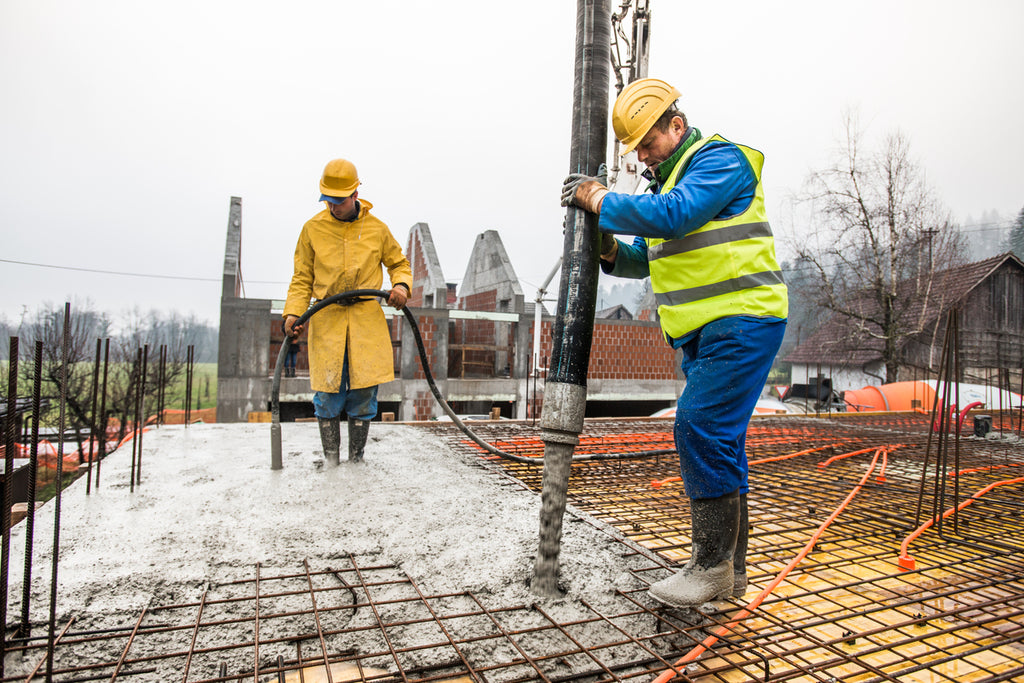
With every construction project, the number one priority should be keeping everyone on the site as safe as possible. Staying safe during the long winter months requires doing things differently than during the summer.
Here are some points to keep in mind as we approach the colder season.
Concerns for Employee Health During Winter Months
One of the biggest challenges project managers face during the winter months is keeping their staff healthy. While most worry about sinus infections and the flu, there are other health concerns during the winter that all project managers need to be aware of. Health issues that can plague a job site, particularly when steps aren't taken to protect workers during the winter include:
- Hypothermia
- Trench foot
- Frostbite
Knowing how to recognize the early stages of these common health problems and knowing how to both prevent and reverse them is an important aspect of staying safe on site during the Australian winter.
Stay Warm, Dry, and Healthy
Safety starts with individuals. Project managers are responsible for making sure that each employee is dressed appropriately for the current and projected weather conditions.
Even though you're on a deadline and would like to work with a full workforce, don't encourage people to come to the site if they're not feeling well. Feeling unwell and working with heavy machinery is a perfect recipe for disaster that can result in severe injuries, fatalities, and wrecked equipment. It's better to miss a deadline than to put your workers' lives at risk. Plus, by encouraging one worker who has a bad head cold or flu to stay home, you could prevent the illness from impacting the rest of your crew.
There are several things you should do during the winter months to ensure that your crew stays healthy and safe, including:
- Checking the forecast prior to starting work for the day to see if any bad weather is scheduled to hit while you're working
- Making sure your crew is wearing layers of warm clothing, including a waterproof outer layer that will protect them from winter rains
- Set up a heated, covered space on the work site where workers can take breaks and warm themselves
- Try to do outdoor work during the warmest part of the day
- Keep the site well-stocked with water and warm, caffeine free, drinks such as tea and decaffeinated coffee. It doesn't hurt to have warm soup on the job site
- On days that are particularly rainy and cold, make sure your employees are working in pairs so they can monitor each other's health.
Pay careful attention to each person on the job site, especially on the days when the wind is blowing and you're dealing with heavy rains. If you notice one of the workers is shivering heavily or is having trouble speaking properly, they're at risk for both hypothermia and frostbite. Don't wait to see if their condition worsens. You need to act right away.
Construction Equipment and Tool Safety on Site During the Australian Winter
Wintertime presents different construction equipment concerns than you deal with during the summer months.
As winter approaches, take a look at all of your equipment and explore the different ways they can be made safe during the winter. Examples include:
- Wrapping metal handles and knobs in thermal insulating material
- Reattaching doors to skid steer cabs
- Looking for ways to cover any leaks in the construction equipment's cabs
- Adding rubber traction pads to the metal footholds and steps that lead into large pieces of earthmoving equipment
- Repairing any torn or bent pieces of metal that could catch and tear jackets
During and after heavy rains, pay careful attention to the job site. Identify any areas that the rain has turned slick and mark them so your employees know to avoid those areas while operating the skid steer and other earthmoving equipment. If there's no way to avoid foot traffic on a slippery hill, provide a wooden ramp which provides better footing and helps prevent slip and fall injuries.
Wintertime construction work is difficult, but by taking certain precautions and slowing down a little, you can avoid both injuries and illness.


